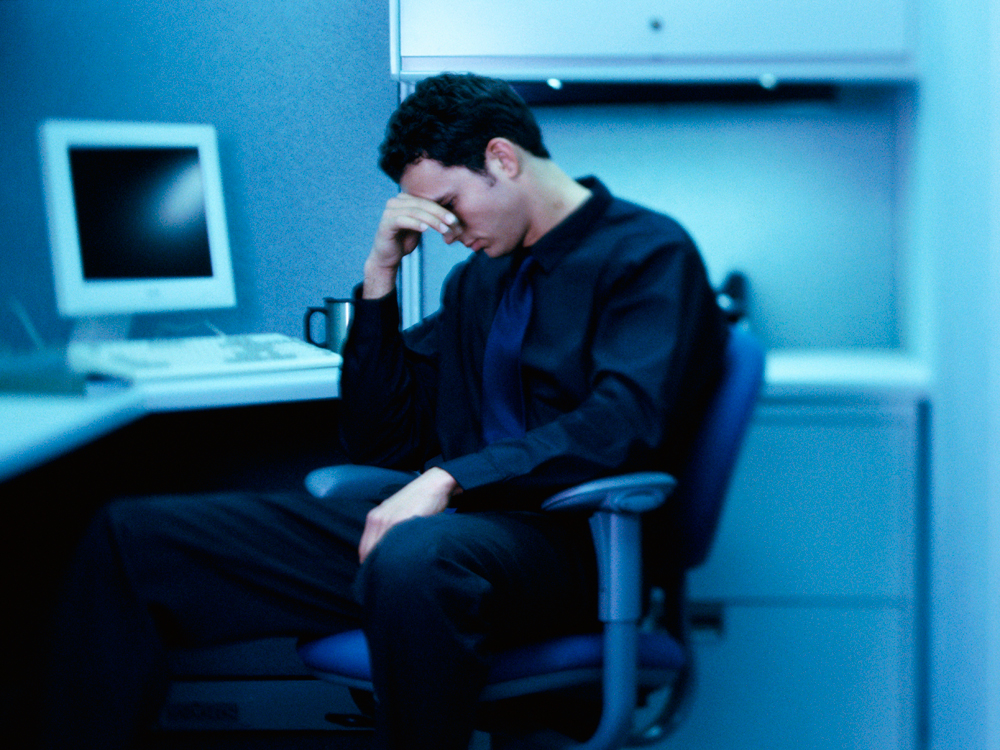Get Easy Health Digest™ in your inbox and don’t miss a thing when you subscribe today. Plus, get the free bonus report, Mother Nature’s Tips, Tricks and Remedies for Cholesterol, Blood Pressure & Blood Sugar as my way of saying welcome to the community!
Turn off the lights to slow premature aging

Modern electricity is a blessing. It allows you to cuddle up with a good book in your bed, communicate with people across the world, stay warm in the winter and watch your favorite movie in the comfort of your own home.
But it’s also a curse. No matter where you go, you can’t get away from artificial light. The fluorescent lights in every grocery store, the flood lights in every parking lot — not to mention the constant glow from the screens of your computer, TV, phone and tablet.
We seem to have taken a good thing too far. And science agrees. The latest research study published in the journal Cell Biology shows that too much artificial light could actually be making you older and sicker.
To study how too much light affects the body, researchers exposed mice to around-the-clock light for a period of 24 weeks. And here’s what happened:
- Their bones deteriorated
- Their muscles weakened
- Their inflammation levels rose
In just a matter of 24 weeks, researchers said that these mice had become frail and old — all due to some extra light. But these findings that bare a striking resemblance to premature aging aren’t all that surprising if you know anything about your body’s circadian rhythm…
In a period of 24 hours, your body undergoes a series of mental, physical and behavioral changes known as your circadian rhythm. These changes influence when and how your body releases important hormones, changes its temperature, falls asleep and wakes up. So, needless to say, it’s pretty important.
As humans, we’ve evolved to have a circadian rhythm that corresponds with the natural cycle of the day… a natural cycle that revolves around sunlight. Since light essentially controls your circadian rhythm, too much light could easily throw it out of whack… and throw your health out of whack with it.
“We used to think of light and darkness as harmless or neutral stimuli with respect to health,” said study researcher Johanna Meijer of Leiden University Medical Center in the Netherlands. “We now realize this is not the case based on accumulating studies from laboratories all over the world, all pointing in the same direction. Possibly this is not surprising as life evolved under the constant pressure of the light-dark cycle. We seem to be optimized to live under these cycles, and the other side of the coin is that we are now affected by a lack of such cycles.”
Fortunately, researchers also found that the light-related damage could be reversed. After two weeks of being exposed to natural light patterns, the mice’s health problems vanished.
So if you’re one of the 75 percent of people in the world that’s exposed to artificial light at night you might want to make some changes. Here are a few simple tips that will help you restore order to your circadian rhythm and reduce the premature aging effects of too much light:
- Spend at least 20 to 30 minutes in natural morning sunlight
- Get a light therapy bulb or lamp if you’re stuck indoors all day
- Avoid brightly lit screens for at least one hour before bed
- Go to bed at the same time every night
- Sleep in complete darkness
Sources:
-
Lucassen et al. “Environmental 24-hr Cycles Are Essential for Health.” Current Biology, 2016.
-
“Circadian Rhythms Fact Sheet.” The National Institute of General Medical Sciences. https://www.nigms.nih.gov. Retrieved July 15, 2016.
-
N. Cheung, P.C. Zee, D. Shalman, R.G. Malkani, J.Kang, K.J. Reid. “Morning and Evening Blue-Enriched Light Exposure Alters Metabolic Function in Normal Weight Adults.” PLOS ONE, 2016; 11 (5).












